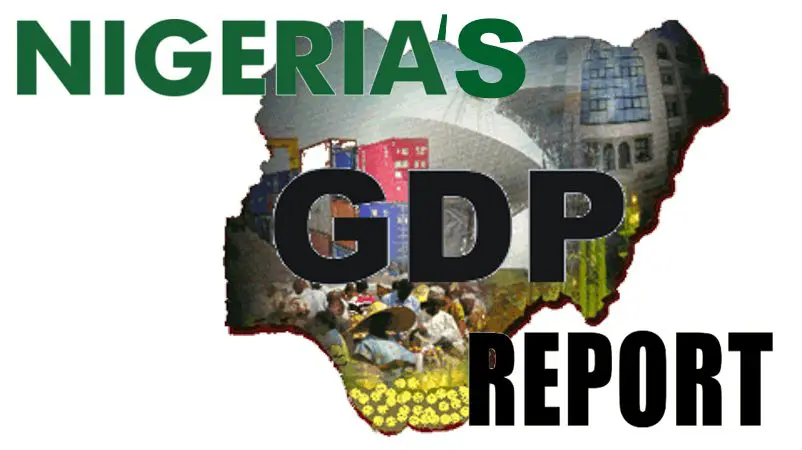Nigeria’s Gross Domestic Product (GDP) grew by 3.19 percent in the second quarter of 2024, on the back of strong growth recorded in the financial services, rail, and metal ores sub sectors, Nigeria’s Q2 2024 GDP data shows.
This was disclosed yesterday by Nigeria’s data agency, the National Bureau of Statistics (NBS), attributing the rising growth trend to the fantastic growth in the nation’s financial services sector.
“Nigeria’s Gross Domestic Product (GDP) grew by 3.19% (year-on-year) in real terms in the second quarter of 2024. This growth rate is higher than the 2.51% recorded in the second quarter of 2023 and higher than the first quarter of 2024 growth of 2.98%,” NBS stated.
“The performance of the GDP in the second quarter of 2024 was driven mainly by the Services sector, which recorded a growth of 3.79% and contributed 58.76% to the aggregate GDP. The agriculture sector grew by 1.41%, from the growth of 1.50% recorded in the second quarter of 2023. The growth of the industry sector was 3.53%, an improvement from -1.94% recorded in the second quarter of 2023,” NBS added.
The second quarter 2024 real growth compares with 2.51 percent growth in similar period in 2023. Non-oil GDP grew by 2.75 percent as against 3.58 percent as of June 2023. Oil GDP grew by 10.15 percent at the end of the second quarter of 2024 compared with negative 13.43 percent as of June ending 2023.
Optimising that Nigeria would return to the growth path shown in April this year when the NBS announced a real GDP growth rate of 2.98 percent at the end of the first quarter of 2024. The second quarter real GDP growth rate of 3.19 percent makes the realisation of this year’s growth projection feasible by year end.
Based on the 2024 budget assumptions, Nigeria projected the economy would grow by 3.88 percent by year end, and with the latest growth rate, the country is poised to surpass it by year end if the tempo is sustained.
“From a structural perspective, the GDP growth was jointly driven by oil and non-oil activities. The oil economy grew by 10.2% y/y, due mainly to low base year effect (the sector contracted by 13.3% in Q2:2023), despite a decline in daily average crude oil production to 1.41mbpd in the quarter from 1.57mbpd in Q1:2024,” Afrinvest said in a note to investors.
The most performing sub-sectors based on their growth rates are the metal ores which grew by 58.12 percent; rail transport and pipelines the grew by 57.14 percent; water transportation that grew by 33.05 percent; financial institutions that grew by 30.37 percent, and insurance that grew by 13.30 percent.
Other sub sectors with double digits growth include crude petroleum and natural gas which grew by 10.15 percent. This sector recorded a negative 13.43 real growth rate at the end of the first quarter of 2024.
Sub sectors with single digit growth rates include telecommunications and information, transport services; forestry; food, beverages, and tobacco; wood and wood products, among others.
Notwithstanding, some sectors are still in a recession. These include coal mining, oil refining, road transport, motor vehicles and assembly, textile, apparel and footwear, livestock and motion pictures, sound recording and music production.
Coal mining recorded negative 15.73 percent and 51.83 percent growth rates at the end of the first and second quarters, respectively, emerging as the worst hit sub sectors in the country. Oil refining was in the negative territory in both the first and second quarters at 35.56 percent and 35.41 percent respectively.
Road transport recorded -55.14 percent and -15.88 percent respectively. Motor vehicles sub sector was down by 3.93 percent and 2.35 percent in the first two quarters of this year respectively.
Meanwhile, the Nigerian equity market reacted positively to the GDP announcement, as the bull dominated trading on the floor yesterday. The All-Share Index (ASI) of the NGX rose by 0.07 percent to close at 96,037.28 points at the end of the trading session yesterday. Market capitalisation of listed equities rose to N55.17 trillion up from N55.13 trillion last week Friday, translating to a daily gain of N37 billion


